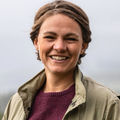Interviews
ZSCHIMMER & SCHWARZ extends development possibilities
20 Apr '10
4 min read
In today's industry it is becoming more and more difficult to carry out trials for the development of new products on commercial production lines. The high pressure on pricing in the market for fibres and nonwovens forces manufacturers to use their plants for production only - not for trials. Therefore the industry constantly searches for new routes to simplified and cost-saving-product developments.
ZSCHIMMER & SCHWARZ in Lahnstein, a manufacturer of spin finishes for the man-made-fibres industry, does not only offer tailor-made solutions for the product line itself, another main area of supporting the customers is to offer to use the extensive range of pilot plants as well as laboratories.
ZSCHIMMER & SCHWARZ is equipped with spinning lines for the production of polyester, polypropylene as well as polyamide yarns. On these lines all common processes of FDY, POY, BCF as well as CF can be produced. For POY yarn titers of 50-150 denier and for FDY yarn titers of 50-400 denier can be spun. The maximum winding speed of the plant is at 6000m/min.
BCF and CF yarn can be spun, textured and entangled at 500-3000 denier. The maximum winding speed is at 4000m/min.
Especially of interest for the Nonwovens industry is the Coatema nonwoven-treatment plant, available in the nonwovens' lab of ZSCHIMMER & SCHWARZ. Any Nonwoven fabric can be applied with finishes and additives and then dried. Application is by kiss roller or spraying, drying by infrared or hot air. This plant can be used for nonwovens of 30-60cm width. The line speed is between 2 and 40m/min.
In addition to these pilot plants ZSCHIMMER & SCHWARZ offers a wide range of laboratory as well as practical tests. As a new addition to this range of tests, Zschimmer&Schwarz has now added two practical tests for assessing technical yarn. These new test methods simulate two of the main application areas for technical yarn: thermosol dyeing and rubber cohesion. These are very critical fields of application, and are used in areas such as safety belts for cars, belts for safeguarding of loads or for tire cords.
The thermosol process is used for continuous dyeing of mainly polyester fibre with dispersing dye-stuffs. The dye stuff is applied by padding, then dried and at last fixed with hot air. While processing, the dye stuff migrates into the fibre. For being able to simulate this difficult process in a lab, ZSCHIMMER & SCHWARZ has developed a test method where an undyed and untreated belt is finished with the new spin finish and then the dried belt gets padded in dyeing solution, dried again after which the dye-stuff gets fixed. In this case a complete new lab process is used, one that gets very close to real conditions. The determination of test results is then made at different light types, also in ultraviolet light.
In the past it was very difficult to determine the rubber adhesion of polyester yarn. Even for the laboratory tests extensive and expensive processing steps had to be carried out to come close to real manufacturing conditions of tire cord. First the yarn needed to be twisted. Then the RFL-DIP had to be applied by laboratory-dipping machine. The next step was to vulcanize the rubber with calibrated fibres on large vulcanization lines. Only after these extensive laboratory processes the adhesion of polyester fibres in rubber could be measured by the T- or H-test.
ZSCHIMMER & SCHWARZ in Lahnstein, a manufacturer of spin finishes for the man-made-fibres industry, does not only offer tailor-made solutions for the product line itself, another main area of supporting the customers is to offer to use the extensive range of pilot plants as well as laboratories.
ZSCHIMMER & SCHWARZ is equipped with spinning lines for the production of polyester, polypropylene as well as polyamide yarns. On these lines all common processes of FDY, POY, BCF as well as CF can be produced. For POY yarn titers of 50-150 denier and for FDY yarn titers of 50-400 denier can be spun. The maximum winding speed of the plant is at 6000m/min.
BCF and CF yarn can be spun, textured and entangled at 500-3000 denier. The maximum winding speed is at 4000m/min.
Especially of interest for the Nonwovens industry is the Coatema nonwoven-treatment plant, available in the nonwovens' lab of ZSCHIMMER & SCHWARZ. Any Nonwoven fabric can be applied with finishes and additives and then dried. Application is by kiss roller or spraying, drying by infrared or hot air. This plant can be used for nonwovens of 30-60cm width. The line speed is between 2 and 40m/min.
In addition to these pilot plants ZSCHIMMER & SCHWARZ offers a wide range of laboratory as well as practical tests. As a new addition to this range of tests, Zschimmer&Schwarz has now added two practical tests for assessing technical yarn. These new test methods simulate two of the main application areas for technical yarn: thermosol dyeing and rubber cohesion. These are very critical fields of application, and are used in areas such as safety belts for cars, belts for safeguarding of loads or for tire cords.
The thermosol process is used for continuous dyeing of mainly polyester fibre with dispersing dye-stuffs. The dye stuff is applied by padding, then dried and at last fixed with hot air. While processing, the dye stuff migrates into the fibre. For being able to simulate this difficult process in a lab, ZSCHIMMER & SCHWARZ has developed a test method where an undyed and untreated belt is finished with the new spin finish and then the dried belt gets padded in dyeing solution, dried again after which the dye-stuff gets fixed. In this case a complete new lab process is used, one that gets very close to real conditions. The determination of test results is then made at different light types, also in ultraviolet light.
In the past it was very difficult to determine the rubber adhesion of polyester yarn. Even for the laboratory tests extensive and expensive processing steps had to be carried out to come close to real manufacturing conditions of tire cord. First the yarn needed to be twisted. Then the RFL-DIP had to be applied by laboratory-dipping machine. The next step was to vulcanize the rubber with calibrated fibres on large vulcanization lines. Only after these extensive laboratory processes the adhesion of polyester fibres in rubber could be measured by the T- or H-test.
Popular News
Leave your Comments
Editor’s Pick
































-Ltd..jpg?tr=w-120,h-60,c-at_max,cm-pad_resize,bg-ffffff)





.jpg?tr=w-120,h-60,c-at_max,cm-pad_resize,bg-ffffff)
.jpg?tr=w-120,h-60,c-at_max,cm-pad_resize,bg-ffffff)






